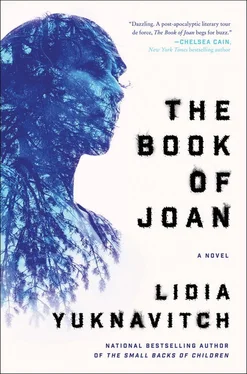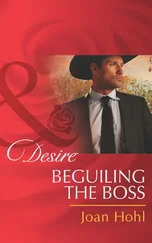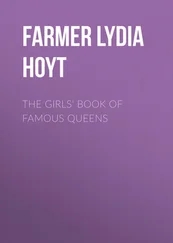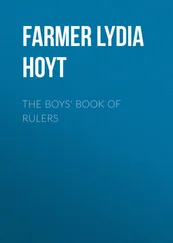Lidia Yuknavitch
THE BOOK OF JOAN
“We are all creatures of the stars.”
―Doris Lessing
“Heterosexuality is dangerous. It tempts you to aim at a perfect duality of desire. It kills the other story options.”
―Marguerite Duras
“Be careful what stories you tell yourselves about beauty, about otherness. Be careful what stories ‘count.’ They will have consequences that shiver the planet.”
―
The Book of Joan
In the hundreds of thousands of years before the Chicxulub asteroid impact that led to the mass extinction of dinosaurs on earth, volcanoes in a region of India known as the Deccan Traps erupted repeatedly. They spewed sulfur and carbon dioxide, poisoning the atmosphere and destabilizing ecosystems.
The dinosaurs and most manner of living things were already at death’s door by the time the asteroid hit.
The Deccan Traps changed the ecosystem radically. Blotted out the sun. Death became history, geography rewrote itself. And yet earth was reborn. It was not a miracle that life was destroyed and then re-emerged. It was the raging stubbornness of living organisms that simply would not give in.
Life re-emerged as it always does. From the depths of oceans and riverbeds to the frozen biospheres hidden under ice sheaths to the very core of the world’s underground caves, from the tomb-like otherworlds of earth, matched in diversity and design only by one thing: interstellar space.
The next time a geocataclysm like this happened, the origin was anything but random.
Burning is an art.
I remove my shirt and step toward a table where I have spread out the tools I will need. I swab my entire chest and shoulders with synthetic alcohol. My body is white against the black of space where we hover within a suborbital complex. CIEL.
Through the wall-size window, I can see a distant nebula; its gases and hypnotic hues make me hold my breath. What a puny word that is, beautiful . Oh, how we need a new language to go with our new bodies.
I can also see the dying ball of dirt. Earth, circa 2049, our former home. It looks smudged and sepia.
A fern perched in the window catches my eye. Well, what used to be a fern. I never had a green thumb, even those long years ago when I lived on Earth. This fern is mostly a sad little curve of stick flanked by a few dung-green wisps; it wilts and droops like a defunct old feathery cock. Its photosynthesis is entirely artificial. If it were allowed the “sun” we’ve got now, with the absence of adequate ozone layers, it would instantly die. Solar flares irradiate us daily, even as we are protected by STEs—“superior technological environments,” they’re called.
I’ve not seen CIEL from the outside for a long time, but I remember it looking like too many fingers on a ghost-white hand. Sky junk. Rats in a maze, we are. Far enough from the sun to exist in an inhabitable zone, and yet so close, one wrong move and we’re incinerated. In our man-made, free-floating station, with our rage-mouthed Empire Leader, Jean de Men, fastened at the helm of things. We’re the aftermath of earth-life. CIEL was built from redesigned remnants from old space stations and science extensions of former astro and military industrial complexes. We who live here number in the thousands, from what used to be hundreds of countries. Every single one of us was a member of a former ruling class. Earth’s the dying clod beneath us. We siphon and drain resources through invisible technological umbilical cords. Skylines. That almost sounds lyrical.
The fern, like all green matter at this point, is cloned. And me? As we’ve been told a million times, “radical changes in the ozone, atmosphere, and magnetic fields caused radical changes in morphology.” How’s that for a cosmic joke of the ruling class? The meek really did inherit the Earth. And the wealthy suck at it like a tit. There’s no telling how many meek are left. If any. I sigh so loud I can almost see it leaving my mouth. The air here is thick and palpable.
There is a song lodged in my skull, one whose origin I can’t recall. The tune is both omnipresent and simultaneously unreachable; the specifics drift away like space junk. There are times I think it will drive me mad, and then I remember that madness is the least of my concerns.
Today is my birthday, and pieces of the song from nowhere haunt my body, a sporadic orchestral thundering that rises briefly and then recedes. Sound fills my ears and whole head, a vibration that rings every bone in my body and then nothing. By “birthday,” what I mean is that today marks my last year until ascension. Now, at forty-nine, I’m aging out, a threat to resources in a finite, closed system. CIEL authorities may permit a staged theatrical spectacle when your time is up, but dead is dead, no matter when you lived. At one time, in the early years here, I remember, we still believed that ascension involved some rise into a higher state of being. Not just an escape from a murdered planet to a floating space world, but a climb toward an actual evolution of the mind and soul. It still strikes me as absurd that all our mighty philosophies and theologies and scientific advances were based on looking up. Every animal ever born—blind or stupid or sentient—looked up. What of it? What if it was only a dumb reflex?
I’ve since come to understand that there are simply too many of us for Jean de Men’s Empire to sustain unless we continue to discover new treasure troves left on Earth or evolve into beings who don’t need plain old food and water. Our recycled meat sacks provide water when we die. It’s the one biotechnological achievement we’ve been able to successfully “create” up here. You can get pure water from a corpse. So far in the evolution of the process, they can extract about a hundred liters of water from a fresh corpse—about twenty days’ survival ration. That’s not very efficient.
No one knows if or how fast those odds will improve. We only know we tried space suits and recycled urine and exhalation modes and a whole wave of deaths resulted from the biotoxins. So we continue to draw from mother Earth, to suck her diseased body dry.
The fern and I stare each other down. When I first came here, I was fourteen and dying from unrequited love. Or hormonally unstoppable love at least. I am now forty-nine, in my penultimate year. If hormones have any meaning left for any of us, it is latent at best, lying in wait for another epoch. Maybe we will evolve into asexual systems. It feels that way from here. Or maybe that’s just wishful thinking. Desperately wishful. My throat constricts. There are no births here. There is a batch of youth in their late teens and early twenties. After that, who knows.
This is my room: stylishly decorated in blue-gray slate slabs. A memory foam bed on a metal slab, a slab of a desk, various metal chairs, a cylindrical one-room shower and human waste purge station. The most apparent thing in my quarters is a one-wall window into space, or oblivion, with a protective shade to help us forget that the sun might eat us alive at any moment, or that a black hole might sneak up on us like a kid playing hide-and-seek.
This is my home: CIEL. A home, forever away from home.
I live alone in my quarters. Oh, there are others here on CIEL. I used to have a husband. Just a word now, like home, earth, country, self . Maybe everything we’ve ever experienced was just words.
Читать дальше













